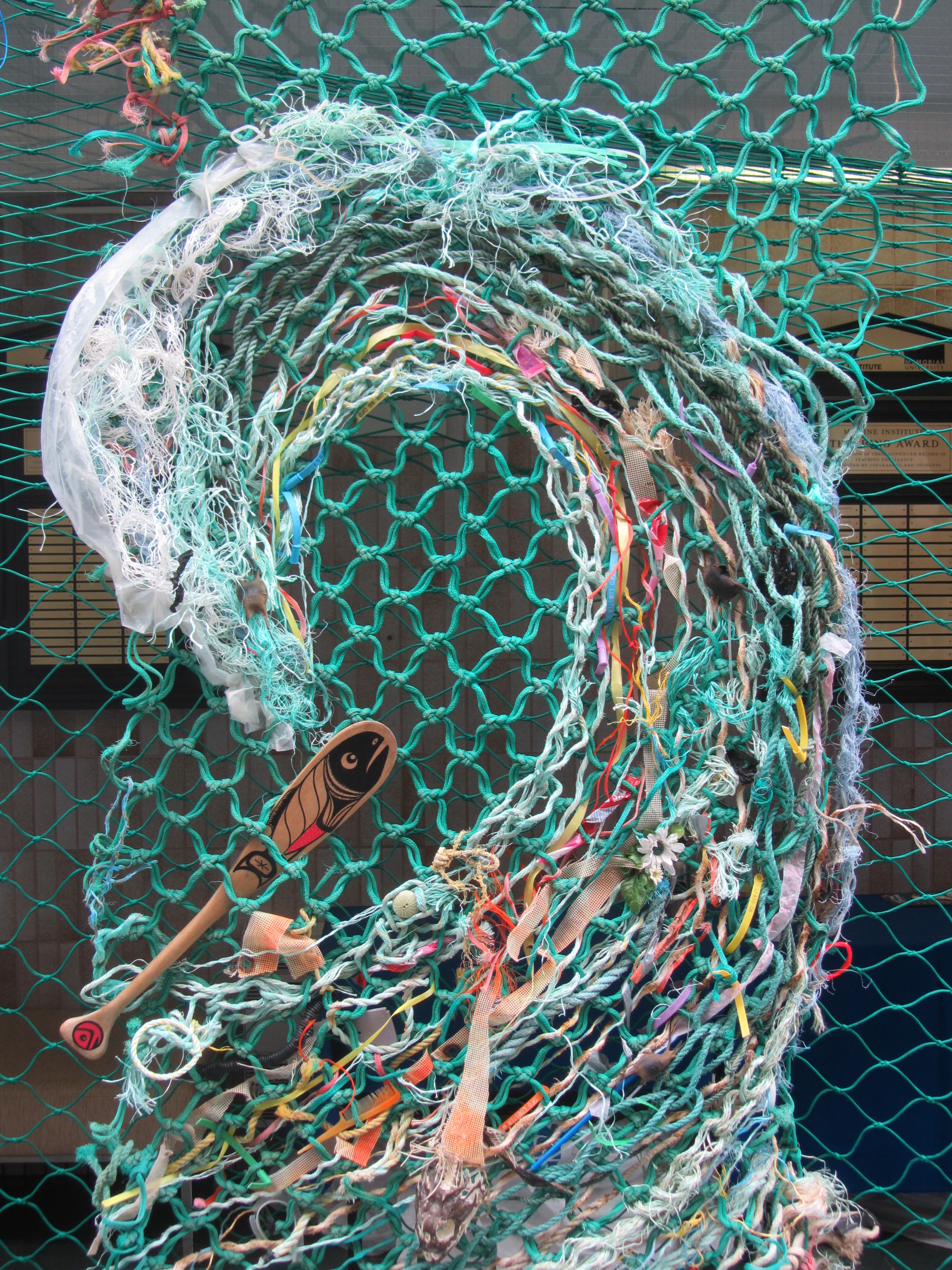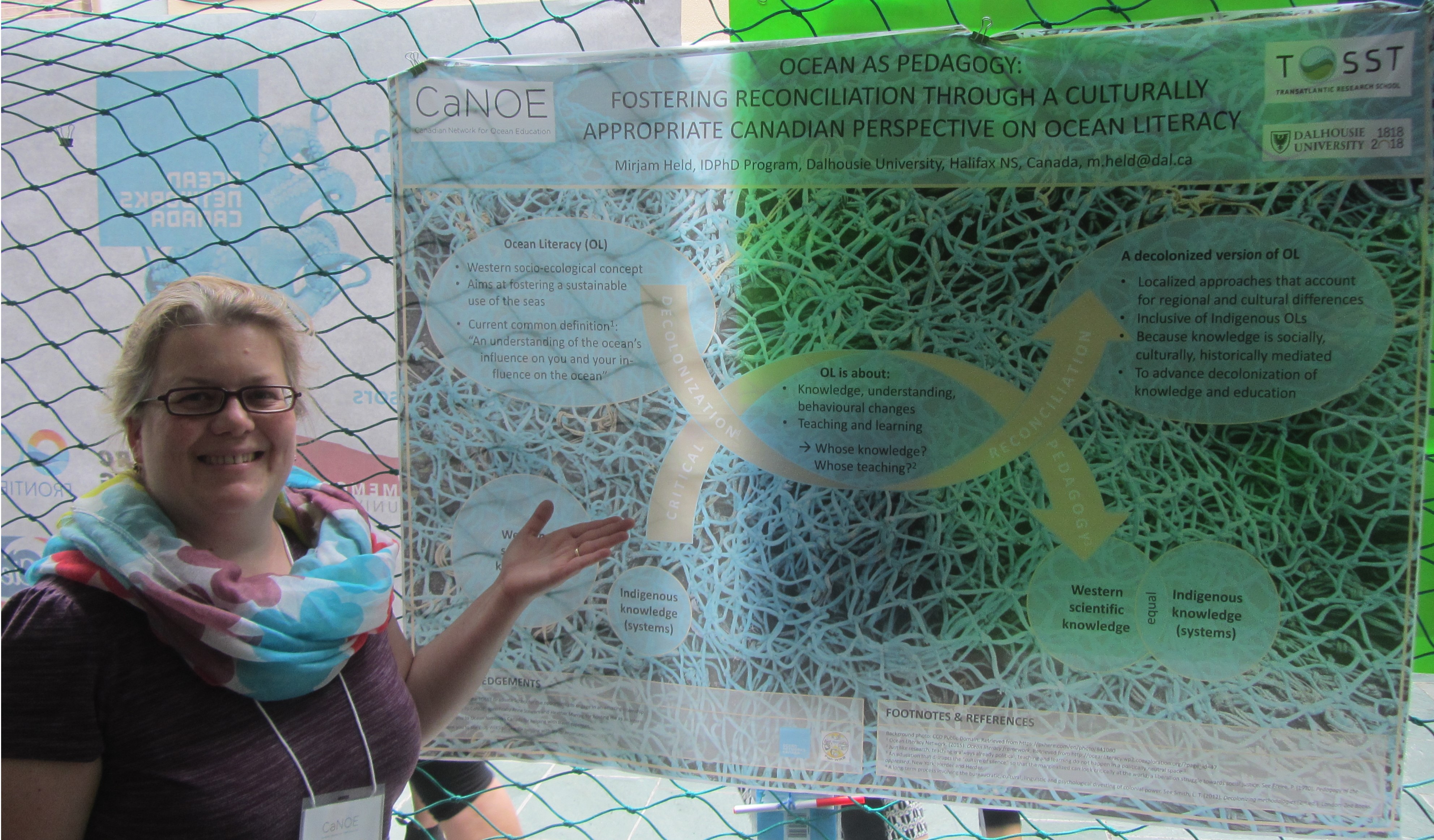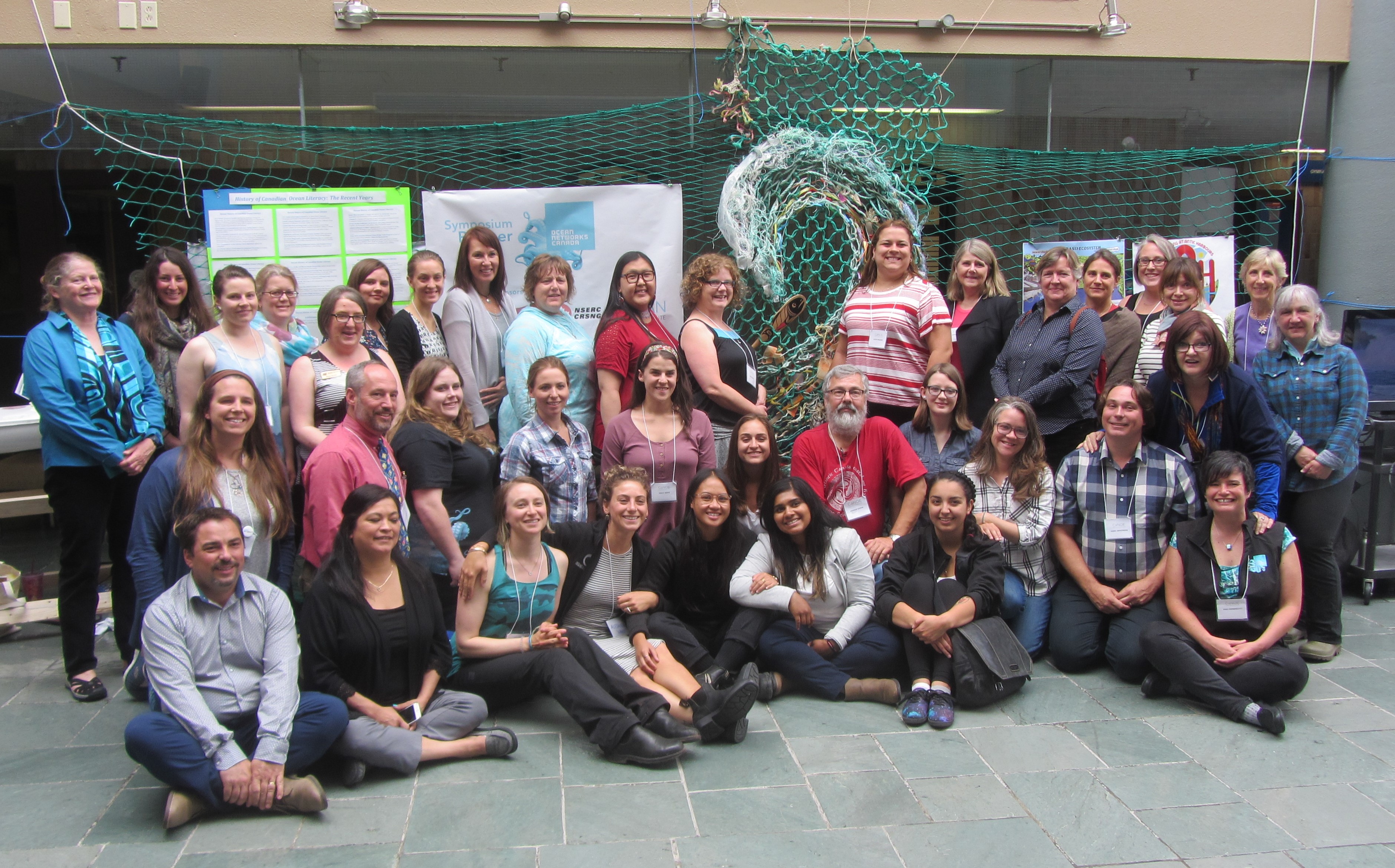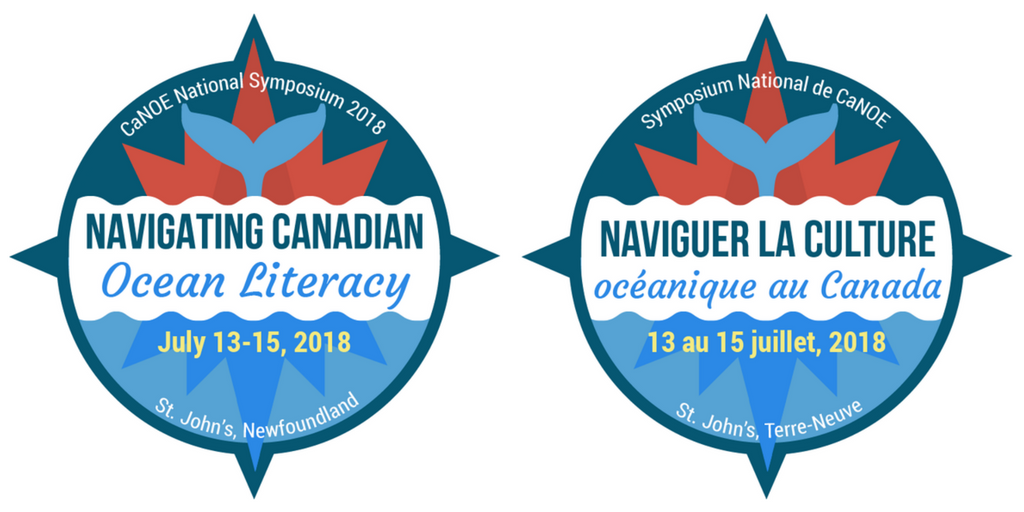Fish-WIKS News
» Go to news mainFish‑WIKS PhD Student Mirjam Held Presents at CaNOE Ocean Literacy conference
Last month, Fish-WIKS PhD student Mirjam Held attended a conference in St. John’s on Ocean Literacy (OL) as part of her TOSST internship with CaNOE, the Canadian Network of Ocean Educators. The CaNOE National Symposium’s theme was Navigating Canadian Ocean Literacy. On the first day, Wendy Watson-Wright, who has been a champion for Ocean Literacy for decades and is currently the CEO of the Ocean Frontier Institute, set the tone by stressing that there is only one ocean, that every human being is intricately linked to it and that OL is key for a sustainable ocean.
The three-day symposium was a ‘working conference’, so the presentation sessions, which celebrated successful efforts in ocean education across the country, were interspersed with interactive workshops.
 Ocean trash into treasure: A marine debris art piece made collaboratively by the
Ocean trash into treasure: A marine debris art piece made collaboratively by the
symposium participants under the guidance of artist Jennifer MacLatchy.
A total of 70 delegates pulled together to develop a uniquely Canadian perspective on what it means to be ocean literate and to help shape a national ocean literacy strategy.
 Drawing on her Fish-WIKS research at the intersection of Western and Indigenous knowledge systems, Mirjam presented a poster titled, "Ocean as Pedagogy: Fostering Reconciliation through a Culturally Appropriate Canadian Perspective on Ocean Literacy", arguing that a Canadian OL strategy needs to take Indigenous ocean perspectives and ways of knowing into consideration, rendering OL a multidimensional concept that is shaped by place, culture and worldview.
Drawing on her Fish-WIKS research at the intersection of Western and Indigenous knowledge systems, Mirjam presented a poster titled, "Ocean as Pedagogy: Fostering Reconciliation through a Culturally Appropriate Canadian Perspective on Ocean Literacy", arguing that a Canadian OL strategy needs to take Indigenous ocean perspectives and ways of knowing into consideration, rendering OL a multidimensional concept that is shaped by place, culture and worldview.
To quote Mirjam's abstract: "Ocean literacy, a Western socio-ecological concept to foster a sustainable use of the seas, is commonly defined as an understanding of the ocean’s influence on you and your influence on the ocean. This understanding, situated at the interface of education, knowledge and behavioural changes, is however always culturally and socially mediated as contexts and priorities differ among peoples and regions. Thus, any attempt to define ocean literacy in the Canadian context needs to take into account these regional and cultural differences and specifically allow for the incorporation of Indigenous ways of knowing, understanding and representing information. Such a cross-cultural approach is imperative in order to reject the current colonial hierarchy of knowledge and advance the process of decolonization and reconciliation."
See Mirjam's poster here.
A great deal of optimism permeated the conference, and the discussions were very fruitful and forward-looking. Mirjam is excited to continue her collaboration with CaNOE into the fall, helping with editorial work as they finalize the wording of a Canadian OL strategy.

The group of symposium participants in front of the completed art piece on the last day.
Recent News
- Muiwatmnej Etuaptmumk Conference 2023 LiveStream
- Knowledge Pluralism in First Nations’ Salmon Management
- Learning Lodge on Mi’kmaw Livelihood Rights
- RoseAnne Archibald elected as national chief of Assembly of First Nations
- Mary Simon named as Canada’s first Indigenous governor general
- Mi'kmaw‑Led Conservation Webinar Series ‑ Thurs March 25 at 6 pm
- FishWIKS team members Lydia Ross and Lucia Fanning publish paper on informed management decision‑making
- FishWIKS team member Nicole LaTulippe co‑authors paper on need to make way for Indigenous research leadership

